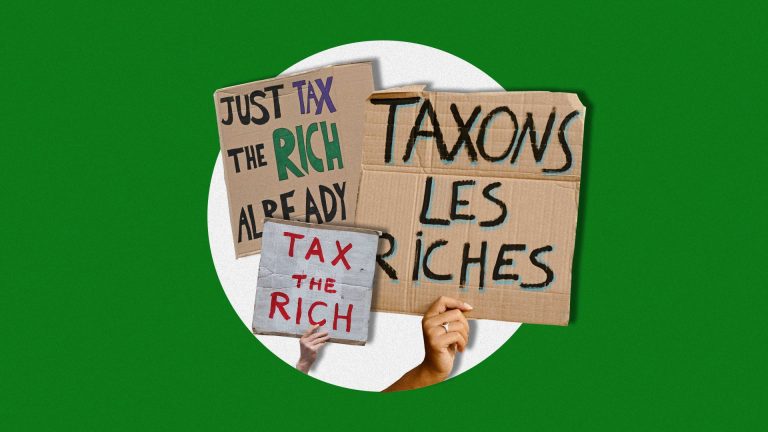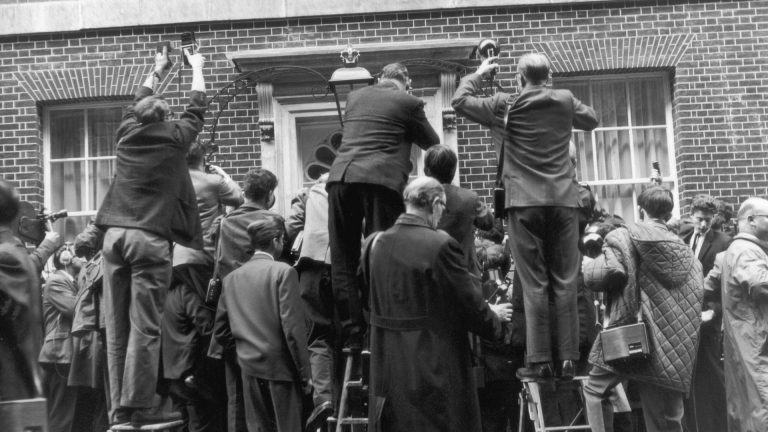The main problem with taxing the rich is not that they cannot afford it, or will flee the country or that it will damage growth or is unfair. It is that the majority of the media is owned by very wealthy people who spend a lot of time persuading relatively poor people that any wealth tax will fall on their meagre savings, which is not true.
Wealth in the UK is very unevenly distributed – 40% of it is made up of the value of the property you own, that is if you are lucky enough to own a property. Increasing numbers of people can no longer afford to get on the housing ladder. So homeowners, and especially elderly homeowners, hold a vast reserve of wealth, a great deal of which is concentrated in London and the southeast of England and a few other regional property hotspots. Property wealth is hardly taxed at all, stamp duty is actually a very bad way of taxing anything and limits house moving.
The next largest source of wealth is pensions – that is, private pensions which make up 35% of all wealth, and which are no longer anything like as generous as they once were. The elderly have done brilliantly out of their pensions; the young will never be so fortunate. Also, the tax breaks for pensions are huge and get better the more you earn. Most people have virtually nothing in their pension pot: the average is about £21,000 in total. Try retiring comfortably on that for 30 years.
Financial wealth – owning stocks and shares or savings in the bank – makes up just 14% of all wealth, although it is overwhelmingly owned by very few people. The rest is personal wealth – your possessions.
As a consequence, the top 10% of households have £1,200,000 or more of wealth, while the lowest 10% have £16,500 if they are lucky. Not only that but each generation of older people is holding more and more wealth, especially if they own a home and especially if they own a home in London or the south east. As a result, inherited wealth is becoming increasingly important, as opposed to wealth that has been earned. Most of it consists of wealth from soaring house prices. Labour should be selling any proposals not as a tax on savings or the rich, but on unearned income from people with large assets.
But a wealth tax is not really the solution. Picking an arbitrary total above which people should pay a percentage of their wealth is not really a great idea, because most of the wealth of the country is not held in savings accounts or stocks and shares, but is tied up in property and pension pots.
As Stuart Adam, a senior economics at the Institute for Fiscal Studies told me, “There are ways you could tax wealth – or the wealthy – more, without introducing a wealth tax”. That means higher taxes on undertaxed parts of the economy and unearned wealth.
Any such plan will be very unpopular, because the obvious ways to raise more money are by taxing property, pensions and inherited wealth. The problem is that the current system of property tax is a complete mess. Stamp duty should be abolished as positively harmful, even though it raises around £11bn a year. It has to be replaced with something else, perhaps an annual tax on the property’s value and by updating the calculation of rateable value. The last time it was done in England was 34 years ago. Since then, property prices have soared in value.
If you changed the extremely generous tax system for capital gains on savings, investments and property, you would bring in more money and it would also be fairer. Higher income taxpayers pay 40% on what they earn but only around 24% on anything their savings or investments make. This is grossly unfair. It is also a reward for people with substantial savings and a disincentive for them to earn an income.
With proper allowances to encourage savings, you could tax income from all sources at the same rate. As Stuart Adam puts it: “If you get the structure right, you would create a more level system, and you could raise as much or as little as you want.”
Tax Justice UK calculates that such a policy, including closing loopholes “could raise £12bn per annum, create a more equal tax system and support economic growth.” What’s not to like?
Pension taxation reform is already changing and from 6 April 2027, most unused pension funds and death benefits will be brought within the value of a person’s estate for inheritance tax purposes, closing a huge and very valuable loophole for the richest and bringing in another £1.46bn a year by 2030. But more could be done. The loophole that lets you take out 25% of your pension pot encourages many people to blow their pension money far too early. It also costs the Treasury £5.5bn a year. That loophole should be closed.
Suggested Reading


Just tax the rich
The final building block of a fairer system that would bring in more money would be inheritance taxation. Inheritance tax is very unpopular for no apparently good reason, because over 95% of people are too poor to ever pay it. Yet it is a tax that is full of unusual exemptions, such as being able to avoid any tax by giving away money seven years before you die or giving huge tax breaks to those who own property but not to those who rent. It would be perfectly possible to increase the revenue from inheritance tax by raising the start rate to exclude even more people from ever having to pay it and closing the loopholes and increasing the rate for the largest estates. You might easily bring in another £5bn a year that way, on top of the £7bn it already brings to the exchequer.
The trouble with all of the above is that resistance will be strong, and losers are always louder than the winners. A simple tax on people with assets over say £10m might be less controversial, easier to introduce and might even be popular with over 99% of the population who will never pay it.
But it would not address the imbalances, the unfairness and inconsistencies in the current tax system which desperately need to be fixed. These would bring in more in the long run and do more to boost growth than a simple wealth tax.












